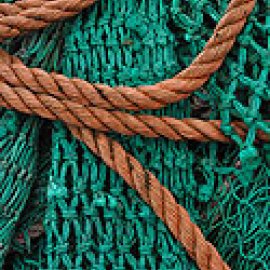Change Is In the Details
-
English
-
ListenPause
[intro music]
Welcome to World Ocean Radio…
I’m Peter Neill, Director of the World Ocean Observatory.
As we continue to discuss solutions and new ideas to sustain through sustainable practice and responsible utility, we should begin to look for change in the details.
Let me give you some examples from home water here in Maine where we are experiencing many instances of old behaviors and new ideas breeding conflict, not solution. One example is the ongoing dispute between the lobster fishery and environmentalists over gear modifications to protect entanglement of migrating right whales coastwise through the Gulf of Maine. The problem is complex – a function of record catch, number of vessels and pots fishing, changing climate conditions and water temperature, number of entanglements, number of ship whale strikes and strandings, scientific data collection methodology, subsequent regulatory recommendations, access and public input, suits and countersuits, press coverage, and more. Sometime, back when, there was a moment when representatives of the parties where together in a room, with the prospect of compromise, but that was lost to the forces of certainty, self-interest, opposing purpose, political ideology, changing markets, academic reputation, fear of change, indifference to consensus or a common good…into a swim of unnecessary hostility, now fought to a draw, a stasis, with no victors, only losers be they fishers, bureaucrats, or whales.
This socio-political process is not new to our present dynamic. We see it everywhere: conflict of interest, the tyranny of certainty, and the breakdown of civil discourse and, inevitably, the denial of common interest, no solution in sight. Sometime, in the aftermath of failure, the process can start anew; in this case, we’ll see.
But here is another example, where a problem of jurisdiction and historical process has kept common interests apart and where change, envisioned, might just be possible if common sense prevails. Recently, the Maine Coast Fishermen’s Association, in concert with the Fishing Community Coalition, a consortium of 1,000 small boat fishermen from Maine to Alaska, testified before the US House of Representatives Agricultural Committee which addresses the national food economy through the authorization of the Farm Bill that determines government priorities and funds for national domestic food policy. The bill traditionally caters to terrestrial farms through grants, incentives and credits, capital investment, and market controls. The Fishery Coalition presented amendment and inclusion that would extend these Farm Bill advantages to fisheries, seafood processors, seafood marketing, working waterfront improvements, and opportunities for start-up marine industries, coastal development, adaptation to changing climate conditions, increased market access and distribution, and the health and welfare of a major, present and future, sector contribution to America’s food production, economy, and public health.
The mission of the US Department of Agriculture presents its responsibility to “the Nation’s farmers and ranchers and other stewards of private agricultural lands and non-industrial private forests…” Its program focus on insurance, conservation, lending, and protections, on nutrition policy and education, dietary guidance, food inspection and safety, consumer services, wildlife management with focus on grasslands and forests. Nowhere in my reading do I see any mention of seafood, its related nutrition or harvest to which such programs and protections presently extend.Logic would argue that given the changing diet, agricultural challenges, and patterns of work and consumption, the inclusion of marine food into the system would be welcomed and advanced. But, given the mindset that any addition of one interest means a reduction of another, it is not difficult, perhaps inevitably predictable, that representatives of farm districts and states, many inland and unaware of marine food systems, vested interest, including the federal managers, will see this as an intrusion on historical allocations and traditional benefits. Of the 50 United States, 22 have access to the ocean, and thus have some kind of fishery and associated industry and employ. Changing dietary patterns are clearly directed toward additional seafood as harvest, new marine product supplements, and small business expanding the reach of such value into unexpected products and rewards. This pattern will continue and there is every reason to expect it to grow. Why would a seafood product inclusion not be welcomed without hesitation? Will there be a solution? Change is in the details. We’ll see.
We will discuss these issues, and more, in future editions of World Ocean Radio.
[outro music]
This week on World Ocean Radio we're discussing a topic close to our home waters in Maine: the complex dispute between the lobster fishery and environmentalists over gear modification and the entanglement of migrating right whales. And we highlight the Maine Coast Fisherman's Association who recently addressed the US House of Representatives to discuss amendment to the Farm Bill that would extend those bill's advantages and opportunities to fisheries and marine coastal development.
About World Ocean Radio
Peter Neill, Director of the World Ocean Observatory and host of World Ocean Radio, provides coverage of a broad spectrum of ocean issues from science and education to advocacy and exemplary projects. World Ocean Radio, a project of the World Ocean Observatory, is a weekly series of five-minute audio essays available for syndicated use at no cost by college and community radio stations worldwide.
- Login to post comments



